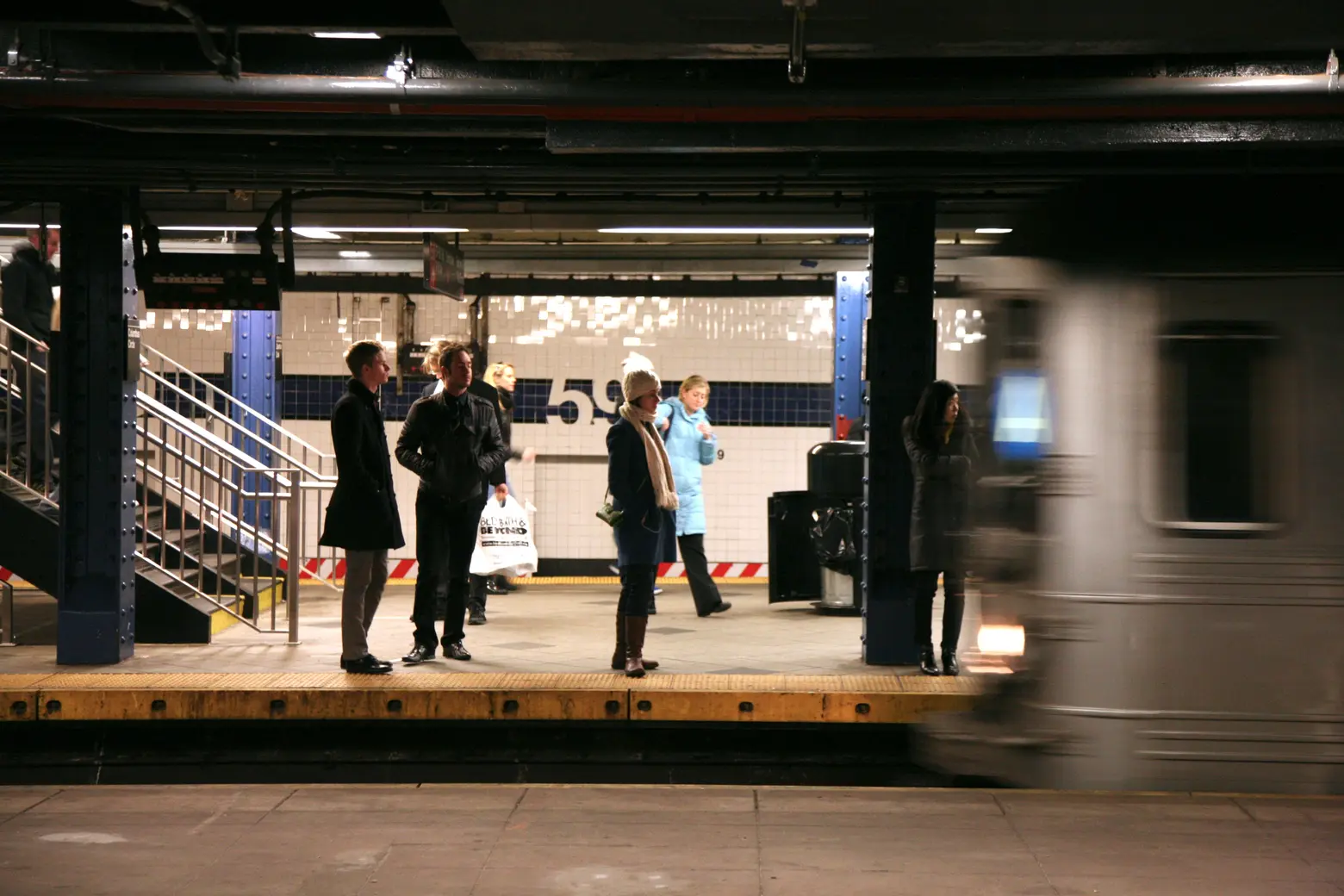Funding for MTA and Broadway included in latest federal COVID relief bill

Photo by (vincent desjardins) on Flickr
Congress on Sunday reached an agreement on a $900 billion emergency coronavirus relief package, roughly nine months after the first stimulus was signed into law. The package is expected to provide one-time direct payments of $600 to most taxpayers and provide an additional $300 per week to those unemployed. In some positive news for New York, the stimulus deal also includes $4 billion to the Metropolitan Transportation Authority and the Save Our Stages bill, which provides funding for live performance venues, comedy clubs, and Broadway. Congress could vote on the package as early as Monday.
President-elect Joe Biden has pushed for the stimulus package, calling it only a “down payment” until he takes office next month. During a joint press conference on Sunday, Speaker Nancy Pelosi and Sen. Chuck Schumer called the agreement a first step, with more expected “under the Biden-Harris Administration, about 700 hours from now,” according to Pelosi.
“The emergency relief in this agreement, the second largest in history only to the CARES Act, is an important first step that Democrats look forward to building on under the new Biden-Harris Administration to meet the remaining needs of the American people during this historic health and economic crisis,” Schumer and Pelosi said in a joint statement.
“The House will move swiftly to pass this legislation immediately, so it can quickly be sent to the Senate and then to the President’s desk for his signature. With the horrifying acceleration of daily infections and deaths, there is no time to waste.”
The package includes $45 billion for transportation, including $14 billion for transit systems. According to Schumer, $4 billion of that will be provided to the MTA, which is facing its worst financial crisis in history because of the pandemic. The MTA has requested $12 billion in aid from Congress in addition to the $4 billion it received earlier this year. But according to the agency, the latest package helps avoid service cuts and thousands of layoffs next year.
“This crucial funding will allow us to get through 2021 without devastating service cuts and layoffs of over 9,000 colleagues,” Patrick Foye, MTA chair, said in a statement. “To be clear, we are still facing an $8 billion deficit in the years ahead, but this is a promising first step that will help protect the local, state and national economies in the short term. We hope any future bills will fully offset the impact of the pandemic as there can be no recovery without a strong public transportation system serving as the engine for progress.”
The Save Our Stages Act was also included in the deal, which would help thousands of live performance venues and cultural institutions in New York City, including Broadway theaters. The agreement includes over $284 billion for first and second forgivable Paycheck Protection Program (PPP) loans, expands PPP eligibility for nonprofits and local newspapers, TV, and radio broadcasters, and makes modifications to the program to serve the “smallest businesses and struggling non-profits.”
With that comes $15 billion in “dedicated funding for live venues, independent movie theaters, and cultural institutions,” according to Pelosi and Schumer.
But the deal does include the Restaurants Act, which would have provided relief to the struggling industry. Andrew Rigie, the executive director of the NYC Hospitality Alliance, called the package “better than nothing, yet still a disgrace.”
“Ten months into the pandemic, when countless restaurants and jobs have been lost, and indoor dining has again been shut in New York City, it’s shameful that the federal government again failed to enact the bi-partisan RESTAURANTS Act, which would provide structured support to save these small businesses that have been uniquely devastated by COVID-19,” Rigie said in a statement. “Although the agreed-upon stimulus includes the important Save Our Stages Act, another round of the Paycheck Protection Program is merely a band-aid on a cannon wound.”
Other provisions in the package include $25 billion in rental assistance and a one-month extension of the nationwide eviction moratorium. The National Low Income Housing Coalition (NLIHC) estimates New York would receive $1,294,953,000 as part of the rental assistance program.
The bill extends the moratorium on evictions through January 31. Diane Yentel, the president of the NLIHC, said while the latest relief package doesn’t go far enough, the moratorium and the rental assistance provides immediate protection until Biden takes office and further extends support measures.
“Similarly, while $25 billion in emergency rental assistance is clearly not enough to meet the estimated $70 billion in accrued back rent or the ongoing need for rental assistance to keep families stably housed, these resources are essential and desperately needed,” Yentel said in a statement. “Targeting the funds to the lowest-income people will help ensure those most at risk of eviction are assisted first. Congress should enact this compromise legislation immediately, then get back to work in January on comprehensive solutions.”
RELATED:
- MTA considers ditching unlimited MetroCards, cutting service amid budget crisis
- ‘Open Culture’ program will bring outdoor art and live performances to NYC this spring
- Fauci says Broadway could return next fall if ‘large proportion’ of nation receives COVID-19 vaccine
- New York pol calls on Cuomo to reopen comedy clubs




























